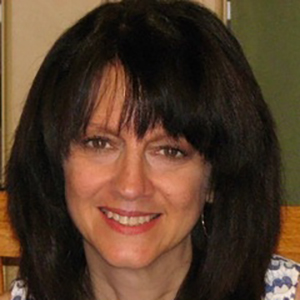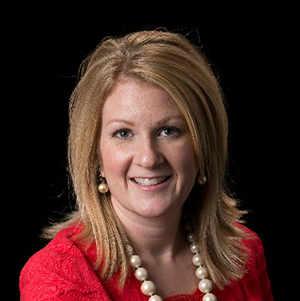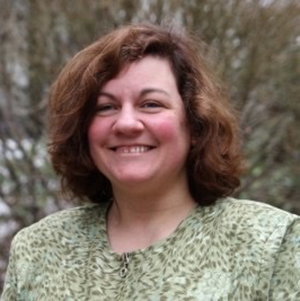In this Article

A bachelor’s in health science can prepare you for a career that combines science and healthcare. This interdisciplinary degree often allows students the flexibility to combine a core curriculum with a specialization that focuses on clinical or administrative roles.
Overview
A bachelor’s in health science can appeal to a broad range of students. It can be the foundation for a graduate degree in medicine, or for a career behind the scenes managing and improving many nonclinical aspects of patient care.
“A health sciences degree is a powerful degree for a student interested in the health field,” says Anna Zendell, PhD, MSW, senior faculty program director at Excelsior College. “It is by nature a flexible degree that allows students to work toward their own goals, with room to explore their career interests. It’s a degree tailor-made for someone who wants to make a difference for individuals, families, and communities.”
While an associate degree in health science can be appropriate for working in some entry-level positions or for simply testing the waters to determine your interests, a bachelor’s degree can help you take the next step.
“To advance into leadership, a bachelor’s degree is usually necessary,” says Zendell. “A bachelor’s degree opens the door to career advancement. The same is true for those who want to have more of an advocacy or decision-making role.”
A master’s degree is typically necessary for moving into mid- to upper management. “Students with a master’s degree delve more deeply into the healthcare delivery system, contemporary issues, and organizational problem-solving,” Zendell says.
Bachelor’s in Health Science
Here’s what to expect if you decide that a bachelor’s in health science is the right educational pathway for you.
Prerequisites
A high school diploma or equivalent, such as a GED, is typically the minimum educational requirement for a bachelor’s in health science. While prerequisites vary by program, basic general education courses are typically adequate.
“Students pursuing a health science degree do not need any clinical experience as a prerequisite for acceptance into a program; however, [it can be] helpful to the student when beginning clinical courses,” says Marcy McCarty, MBA, RT (R) (N), director of the Bachelor of Science in Health Sciences program and assistant professor of Healthcare Administration at Pennsylvania College of Health Sciences. “Most students’ high school transcripts should reflect good grades in science and math-related subjects.”
Some bachelor’s in health science programs require an associate degree in an allied health field as a prerequisite. While it’s not always a requirement, the progression from an associate degree to bachelor’s degree in health science is common.
“My experience as a health science educator is that many students who start with the associate degree end up returning to complete a bachelor’s degree,” McCarty says. “The bachelor’s degree helps the credentialed health professional learn more about the healthcare industry in general and strategies to overcome challenges within the dynamic industry. Because many healthcare facilities offer tuition reimbursement, these students work full time while completing their bachelor’s degrees.”
Curriculum
The curriculum required for a bachelor’s in health science typically includes a set of core courses with the option to choose a clinical or nonclinical area of specialization. Some programs provide a more broad-based curriculum without specialization.
Here are examples of the types of core courses in a bachelor’s program:
If your bachelor’s offers the option to specialize, you can typically choose from leadership, medical-science based, and wellness-based options that include coursework in the following areas of specialization:
Clinical Work and Research
Depending on the program and the specialization you choose, you may also do work outside of the classroom. This could involve administrative or clinical training or research in an internship, externship, practicum, or fieldwork.
Work experience is valuable in any field since it gives you a chance to apply what you’ve learned in a real-world setting—and network with other professionals. You may earn credits for this experience, and possibly a stipend.
Clinical specialties typically require you to complete hands-on labs and onsite training. In some cases, this training can help you meet requirements for professional licensure and/or other credentials required to work in a specific role.
Other degree requirements may include a capstone project, which can involve researching an area of interest and using the skills you’ve acquired to address an issue or solve a problem.
Program Length
The amount of time you take to complete your degree can vary by program and your past educational and work experience. Here’s what is common for a bachelor’s in health science:
Full-time student: 4 years
Part-time student: 4-7 years
Starting your bachelor’s degree with an associate degree can dramatically reduce your time to completion to about two years or less, depending on the program.
Some degree programs also allow you to transfer undergraduate credits even if they’re not associated with a degree. You may also be able to earn course credit for work experience, though you may have to take an approved examination to qualify.
Accreditation
When choosing a program and school, you’ll want to make sure they are accredited. Accreditation is awarded to schools that meet the standards for a quality education in their field. Education and career specialty commissions typically award accreditation, which can be important for several reasons:
Online Education Options
Many bachelor’s degrees in health science offer the option to complete your degree online. These programs may be a good choice if you’re interested in advancing in your profession or changing your role to another area of health science, but you aren’t able to commit to the on-campus class structure due to work or family responsibilities.
It’s important to note that while you’ll be able to complete coursework online, you’ll still need to complete any training or fieldwork in person. Requirements for clinical hours vary by specialization but must be completed at a program-approved facility in your area. You also may have additional on-site requirements for labs or other types of hands-on practical experiences.
Online programs provide the same education as on-campus programs, but they typically allow you to learn on your own schedule as long as you meet established deadlines for assignments and exams. Some online programs may allow you to earn your degree faster by letting you move forward as you complete work rather than on a semester or quarter schedule.
While online programs can be attractive due to their flexibility, they aren’t for everyone. Students who succeed in these programs are comfortable using technology and computer-based learning systems. It’s also important to have the self-motivation and discipline to prioritize your studies without the accountability that comes with onsite class attendance.
Bachelor of Health Science Careers
After you’ve started your career, you can boost your credentials with professional certification. Certification is proof that you’ve mastered the skills and knowledge of your profession. It’s usually awarded by a professional organization that administers a certification exam.
While certification may not be required in your field, it can set you apart from other job candidates and demonstrate your commitment to your career.
Here’s a look at four careers you can pursue with a bachelor’s degree in health science. Salary and job outlook details are projections from the U.S. Bureau of Labor Statistics.
Healthcare Management
Health Education Specialist
Medical Equipment Sales Rep
Public Health

With professional insight from:
Anna Giorgi
Contributing Writer

With professional insight from:
Marcy McCarty, MBA, RT (R) (N)
Program Director, Bachelor of Science in Health Sciences, and Assistant Professor, Bachelor of Science Healthcare Administration, Pennsylvania College of Health Sciences

With professional insight from:
Anna Zendell, PhD, MSW
Senior Faculty Program Director for Graduate Health Sciences Degrees, Excelsior College